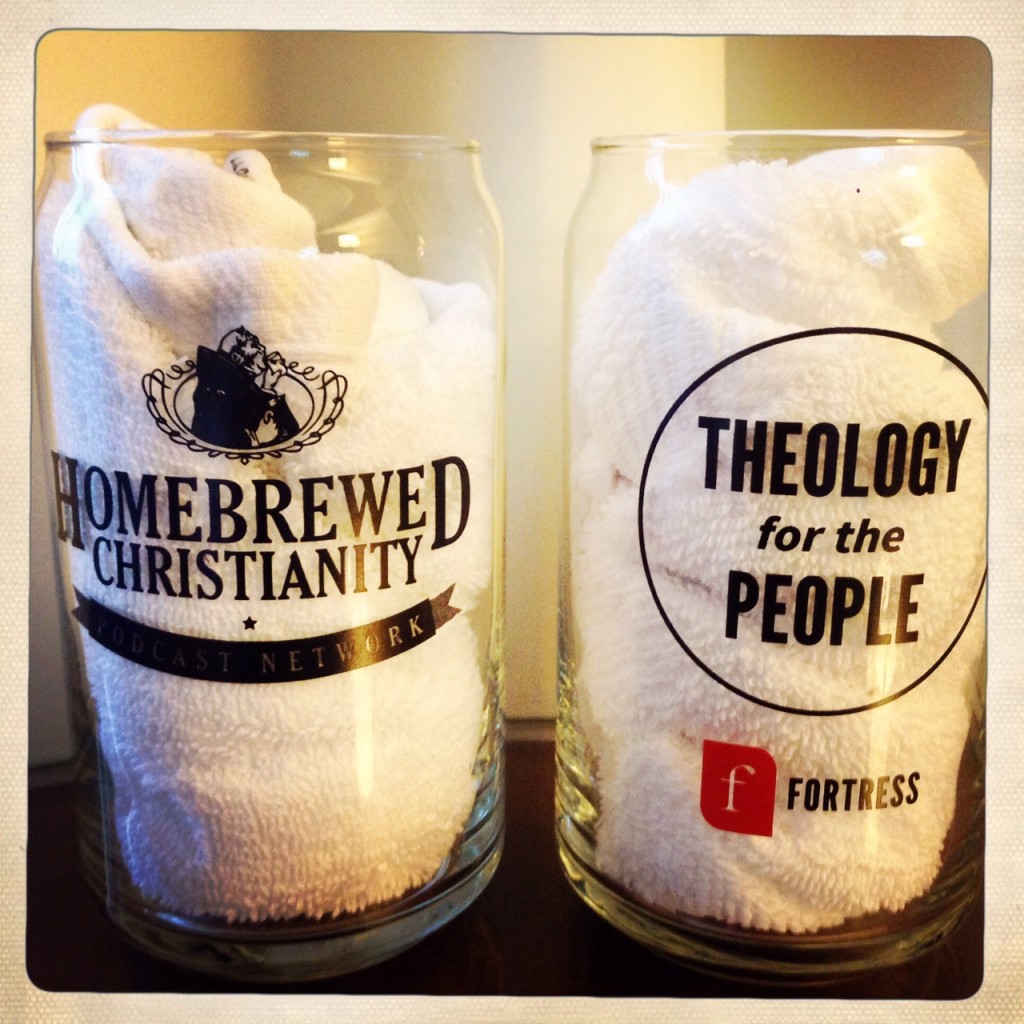All this week, I’ll be posting about Rob Bell’s controversial new book, Love Wins. And this Sunday, April 10, I’ll be guest hosting Doug Pagitt Radio from 12-2pm CDT, talking with Keith DeRose, Michael Horton, and a special surprise guest! The entire two hours will be devoted to a discussion of the book, in advance of Rob’s appearance the following night at Wayzata Community Church.
Last Friday, I already complained about the font of the book. Paul commented that it’s Gotham, the typeface preferred by the Obama campaign and other movers and shakers. I also pointed out a grammatical conundrum, and I commemorated the typo in the final line of the book, now available as a t-shirt!
Today, however, I want to muse about what the what the book is, and what Rob is attempting to do with it.
The book, I think, is a natural outgrowth of Rob’s primary gift, and that is his ability to speak publicly. He is, as his various tours and his video have shown, an artist with the spoken work word. In fact, he’s almost a performance artist.
He is not, nor does he claim to be, a theologian in the traditional sense. In his interview last month with Lisa Miller, he said as much, claiming to be neither a theologian nor a biblical scholar, but a pastor. But, of course, Rob Bell is much more than a pastor.
The book is, as has been noted elsewhere, deeply biblical. In many places, Rob uses single verses, sometimes bordering on proof-texting. He also supplies lists of biblical references, like when he lists all the verses that mention heaven or hell. But at other points, Rob has extended excurses into a particular pericope, as he does with the parable of the Prodigal Son.
And, of course, the book is also deeply theological. I was reminded about a conversation I had several years ago with my friend, Spencer Burke, who had co-written a book about this very subject, A Heretic’s Guide to Eternity. Spencer, who advocates an “opt-out” rather than an “opt-in” version of heaven, was disconcerted about the vituperative attacks he had received from evangelical theologians. When he protested that he was writing a pastoral book, not a theological one, I responded, “You don’t get to write about the doctrine of hell, debated for two millennia, without opening yourself to criticism from theologians.”
Well, Rob has done much of the same thing, but he’s shown even fewer of his cards than Spencer did. There are no footnotes — even a block quote at the beginning of the book from Renee Altson is not referenced. There’s a short section in the back with some titles for further reading, but in general, Rob doesn’t show his work. This drives critics a little crazy, because it leads them to all sorts of speculation about whether Rob has a shrine to Ken Wilber in a corner of his house.
The book reads like the manuscript of a Rob Bell talk. It’s not a book, in the traditional sense. It’s more like a meditation on paper. If ever there was a book to get as an audiobook, this is it (well, this and anything by David Sedaris).
But this does not exempt Rob, or the book, from theological and philosophical scrutiny, to which I will turn tomorrow.















